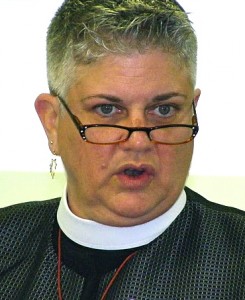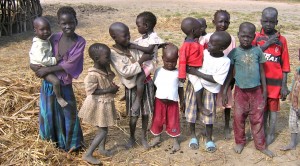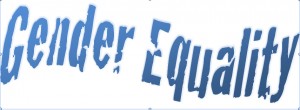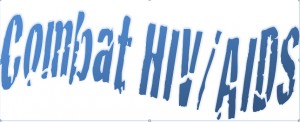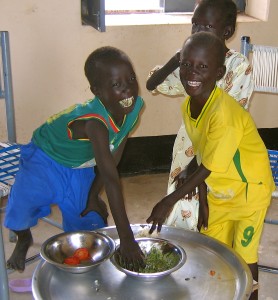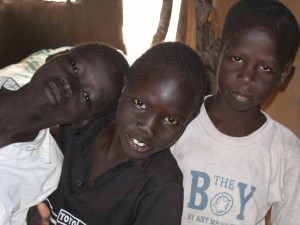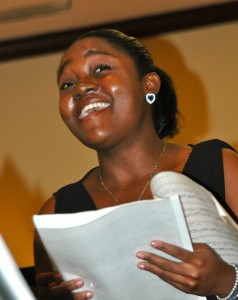Mark 7:24-37
A few weeks after I began my life as a student at Virginia Theological Seminary, I was sitting under a tree in the Grove, reading for my Systematic Theology class.
Now, I knew an awful lot about systematic theology – I was born and raised in the Roman Catholic, I went to Roman Catholic schools and graduated from a Jesuit university. So I was actually pretty “up” on what I needed to know for this class.
But that day, sitting under that tree, I made a stunning discovery, one that changed my life. (Yes, a textbook can change your life.) I discovered Anselm of Bec, the 36th archbishop of Canterbury, who died in the year 1109, and who wrote a stunning piece of theology known as the Proslogion.
In that textbook of mine, I read, for the first time, this tiny snippet from the Prologion, from that masterpiece:
“God,” Anselm wrote, “is that than which nothing greater can be conceived.”[1]
God is that than which nothing greater can be conceived.
I have to tell you, when I read that one sentence, my heart began to race and my body was quivering like a little puppy dog, and my mind was exploding like a supernova, going everywhere and racing around, and I thought, Oh, my God! Yes! This is it! I exulted. This explains everything I’ve ever wanted to know about God!
Think of the greatest love you have ever known – think of it –God’s love is bigger than that.
Think of the greatest suffering you have ever gone through – think about that –God’s suffering is greater.
Anything you can think of, any attribute you can describe, and God, quite simply, is greater than that.
Because God, my friends, is God.

Later on that year, I discovered the writings of Frederick Buechner, who was a theologian and a fabulous writer, and he wrote, among other things, “In his holy flirtation with the world, God occasionally drops a handkerchief. Those handkerchiefs are called saints.”
When I read that quotation, I immediately knew of whom Buechner was speaking for me. He was speaking of Anselm.
Because, for me, Anselm was one of God’s handkerchiefs. Because Anselm could answer my questions, the question that I had for God: “Who are you?”
Anselm answered that. I’m sitting under a tree in the Grove at Virginia Theological Seminary, I’ve been a seminarian for a whopping two weeks, and this little handkerchief fluttered down into my life. And suddenly, all of the possibilities were opened, and all of my theology changed, and every way in which I lived my life changed – right then and there – because I no longer had to ask God, Who are you?, but my questions changed then to, God, what would you have me to do? How can I live into your love, which is greater than any love that I could ever conceive?
It was an amazing moment.
I believe that God sends those handkerchief saints to all of us throughout our lives, so that we all can know more than we have ever known, so that we can go farther than we have ever gone, so that we can dream bigger than we have ever dreamed, so that we can do more than we have ever done.
God’s handkerchiefs are sent to us so that we can be better than we are, so that we can become the people God wants us to be.
The Syro-Phoenician woman in Mark’s Gospel this morning?
She was one of God’s handkerchiefs.
This is a woman who was considered, by Jesus and by his disciples and by anybody else in this story in the Gospels as an unclean woman. She was Syro-Phoenician. That meant she was a Gentile, and she came from mortal enemies of the Jews. And there she is, dropped into the story. Nobody knows where she came from. Nobody knows how she heard that Jesus was, in secret, alone, in Tyre. But there she suddenly appeared.
She goes to Jesus and bows down in front of him, honoring Jesus, recognizing him for who he is, the Son of God, God’s very handkerchief, given to the entire world, and she says, “Please. Cleanse my daughter, for she has an unclean spirit.”
An unclean woman went to Jesus to say, “My daughter has an unclean spirit. Please, heal her. Please.”
Now I need you to be very clear on this:
She had absolutely no business talking to Jesus. None whatsoever.
She was a woman. And ladies, you don’t go and talk to strange men. Certainly not alone.
She was a woman from the wrong tribe. She was a Syro-Phoenician.
She was a woman from the wrong people, a Gentile.
The wrong faith – also, a Gentile.
She was considered unclean.
And yet … there she was, begging Jesus… begging him: “Heal my daughter.”
Because, first and foremost, the Syro-Phoenician woman was a mother. And her child was sick. And she needed help. And she recognized that Jesus could do this. That he was, indeed, the Son of God, and he could heal her.
And what does Jesus say? In his pastoral best, he says, “Nope. Let the children be fed first, for it is not fair to take the children’s food and throw it to the dogs.”
Really?
The Son of God, who came to be with us as one of us, who came to show us what God’s love looked like and tasted liked and felt like and sounded like and yes, even smelled like, the first thing he does is he insults this woman, with the worst insult you can give in that culture? He calls her a dog? And worse, he calls her child a dog???
Let me tell you, I have lived in cultures, I understand this … I have lived in cultures where calling a person a “dog” is enough to start a fist fight. I have lived in cultures where making this symbol (curling a finger to call someone) to come here – that’s how you summon a dog. I have watched two men pick up pickaxes and go at each other over it, because one called the other a dog and went Sssst (and made that gesture). In Africa you do this (curling four fingers under) for a human and this (curling one finger up) for a dog. Dogs are the lowest of the low, they are unclean … they are not my Great Dane puppy, Julian. OK? That’s were dogs are. Lower than even the snakes.
And Jesus calls her a dog.
What does the woman say back to him?
“Sir, even the dogs under the table eat the children’s crumbs.”
Boom!
Take that, Son of God! Let me show you something about loving! Boom!
Just like that, Jesus has his comeuppance. Because this handkerchief from God floated down in front of him, and said, “Open your eyes. Open your heart. Open your mind, Jesus. This is my child. And I need her to be better, and you’re the only one who can do it.”
And that’s what Jesus does.
You notice that he never says, “Your faith has made her well?” No! He just acknowledges, “Wow. You said that, boom, it’s done.”
Jesus needed to have his horizons expanded, his boundaries expanded. He had blinders on. He was so set on going to the chosen people of God that somehow, he had either forgotten or not quite realized that all people are God’s chosen, that all people are God’s beloved, that all people deserve God’s love, and that all people deserve God’s healing.
He was very, very focused on God’s Chosen People, capital C, capital P, the people of the Jewish tradition. And this Syro-Phoenician woman – an unclean woman whose daughter had an unclean spirit – opens Jesus’ eyes.
From that moment forward, Jesus starts going out, and healing Gentiles, as well as healing Jews. From that moment forward, Jesus starts breaking more and more rules, because he realizes that he is there for everyone, and not just for the chosen few.
Now, before we say, “Well, jeez, Jesus, I thought you were the Son of God, you should have gotten that from the beginning” … before we get all smug knowing the end of the story – because, remember, at that point, even Jesus didn’t know the end of the story … before we feel like, “Oh! We’re better than this because we get it,” I want to ask you something:
What blinders do you wear?
What boundaries do you refuse to cross?
What stops you from embracing the world?
Is it, people who don’t agree with you?
Is it, people who are different from you?
Is it, “I don’t want to go there because it is too hard, too far away, too different”?
What blinders do we need removed and what boundaries do we need expanded so that we can live, most fully, into God’s promise to all of God’s beloved creation?
What is it that we need changed?
I’m telling you, God drops handkerchiefs on us all the time. And those handkerchiefs, they open our eyes, and our hearts, and our minds.
You never know where you’re going to find them.
It could be … the person in the grocery store.
It could be … the stranger who smiles at you as you walk down the street.
It could be … the people who come from far away to work up on a mountain so that they can learn how to improve our lives.
It could be … the successful businessmen who travel the country.
It could be … anybody you meet.
So, I want you watch out for those little handkerchiefs. Because they are in our lives every day, and they are there not to tell us how wrong we are, not to pull a Boom! moment on us, but to say, “Look at it a different way.” Or, as one of my friends likes to say all the time, “Turn the stone over, and look at it from the other side.”
God sends us handkerchiefs so that our blinders can be removed, and so that we can live more faithfully, not as we think that we should, but as God dreams we will.
God has dreams for us, and we put limits on those dreams.
So what does God do?
 He drops a little handkerchief in your lap, so that your eyes are opened, and your hearts are opened, and your minds are opened.
He drops a little handkerchief in your lap, so that your eyes are opened, and your hearts are opened, and your minds are opened.
You could be sitting under a tree.
You could be driving through the mountains.
You could be flying across the country.
And you never know …
You could be a handkerchief, too.
Your very presence in somebody else’s life could be enough to open their eyes, and their heart, and their mind.
You could be God’s blessing.
Actually, you already are.
Amen.
Sermon preached on the 15th Sunday after Pentecost, Proper 18, Year B, at Church of the Good Shepherd, Blue Grass, Va., 9 September 2012.
[1] Anselm of Bec, Proslogion in The Prayers and Meditations of St. Anselm with the Proslogion, Benedicta Ward (Translator, Introduction), R. W. Southern (Foreword), Penguiln Classics, 1979.






